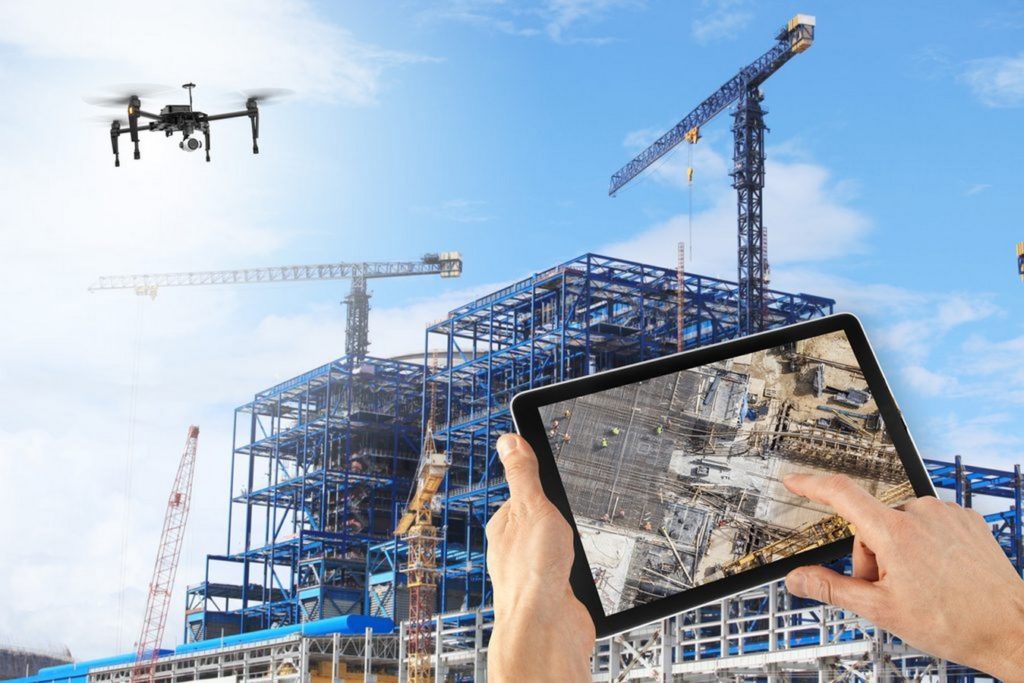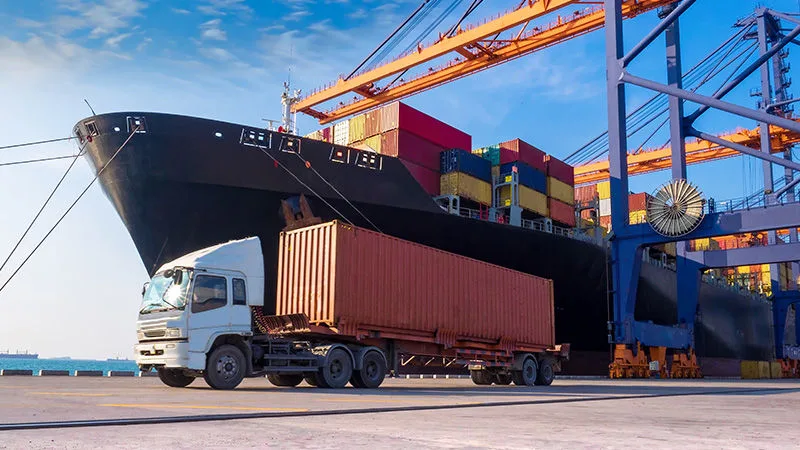 Research
Research ERP For the Construction Industry and Infrastructure
The pandemic accelerated the adoption of digital tools across various areas of the construction industry. Construction companies have adopted collaboration software, data analytics programs, BIM systems, and ERP systems. Each of these tools provides business leaders with a significant amount of data to collect and analyze, and the effective management of large, medium, and even small construction businesses. However, nearly half of construction project managers still manually collect and process this data.
In this article, we’ve summarized what business owners, construction managers, and marketers need to know about ERP, when a company needs such a system and other construction software development services, and how much does an ERP system cost.
What is ERP (Enterprise Resource Planning)
ERP is a solution for all business processes management and automation, including finance, supplies, personnel activities, customer relationships, etc. ERP systems are widely used in various sectors, including construction, where planning and resource management are important components of a successful business.
What is ERP for Construction Company
ERP for construction is a comprehensive system that provides planning and management of business processes of construction organizations. A unified digital environment combines disparate software systems into one integrated solution. Here are the key features of such a solution for the construction business:
- Distribution of work between employees and subcontractors.
- Operational planning and detailed work analysis: daily, weekly, and monthly.
- Data visualization.
- Resource planning with detailing to a specific vehicle or specialty of workers.
- Analysis of planned and actual data on resource costs, and checking project resource availability.
- Managing mutual settlements with subcontractors and the customer.
ERP for the construction industry helps to manage all the business processes of the entire company, thereby providing control over the allocation of resources. ERP systems also serve as a kind of platform for integrating analytical apps, CRM systems, etc. It provides real-time access to operational and financial data, helping the company to optimize the management structure and coordinate all the goals or objectives both for the company as a whole and for individual departments.
When Do You Need to Implement an ERP System
If you have a small business, and you can keep all the information about the company’s work in your head or use a CRM system—the ERP system implementation will unlikely be required. But it’s worth thinking about its implementation if you are faced with some of the following situations:
- The transition of a task between departments takes a long time.
- Employees spend a lot of time doing routine tasks.
- The accounting department is slow to complete the paperwork.
- It’s impossible to get information about the work of any department quickly.
- It’s difficult to control employee effectiveness.
- Interaction with customers is complicated.
- The working environment is fragmented, files cannot be transferred from one program to another.
Even if 2–3 of the listed problems are relevant, it makes sense to choose a custom ERP system that will cover your business needs, and reach the software development goals.
How ERP Solve Problems in the Construction Industry
The ERP implementation allows to reduce:
- time resources for budget preparation by up to 60% thanks to a single information space;
- inventory by 20% over six months by automating the procurement process and monitoring the volume of purchased consumables within the requirements of a specific project;
- by 70% of the time for comparing the actual and planned indicators of the project.

Moreover, ERP software for the construction industry can reduce overhead costs by reducing manual labor and paperwork, and increase control over the chain of all business processes, which will significantly reduce the time for decision-making and improve the quality of management. Finally, ERP significantly increases the efficiency of construction companies and raises their competitiveness.
1. Workflow Automatization
Construction ERP systems automate repetitive processes. Teams will get rid of the routine and will be able to focus on tasks that affect the company’s revenue.
2. Transparent Processes and Easy Collaboration
The ERP system for the construction industry centralizes data and makes it available to all employees. For example, with its help, an engineer of a construction company will keep track of stocks of materials and planned deliveries.
3. Risk Management and Data Security
An ERP solution for the construction industry offers a high level of security. It’ll provide a centralized backup of important and confidential data.
4. Customisable Solutions
Construction ERP software can be configured to cater to the needs of different sectors of the industry, from contractors or subcontractors to housebuilders, maintenance or service organizations, and civil engineering.
Within an organization, dashboards can be created to reflect the particular roles of managers, providing them with instant access to the information they need or prompting them with scheduled tasks and other project information.
5. Reporting and Planning Optimization
With the ERP for the construction industry and infrastructure, you can create reports and build analytics, comparing the work of different departments without bringing together numerous tables.
The ERP system allows you to control the turnover and plan-fact of cash receipts. In addition, ERP will help to comply with regulatory requirements for documentation: you can set requirements in the system, and employees will fill out documents according to templates.
5 Key Construction ERP Trends
Over the next 10 years, companies will need to adapt to industry trends and innovations to improve the ERP software solutions. To handle ERP, AR, AI, machine learning, and other tech innovations, companies will turn to construction technologists to vet new tech and stay competitive.
Artificial Intelligence (AI) & Machine Learning. AI and machine learning tools naturally intersect with construction ERP software. ERP integrates info sources and processes, giving AI and ML tools the raw data needed to support the work of staff members from different company departments.
Augmented Reality (AR). AR devices, such as Microsoft HoloLens headsets, can show the location of pipes and wires behind walls, and other types of visual information that would normally be difficult to access. What else: AR provides an excellent canvas for virtual design and construction. With the help of AR, new staff members can also practice in a realistic environment without the risk to their safety.
The Internet of Things & IoT Devices. Construction equipment, raw materials, drones, physical sensors, and many other items can seamlessly integrate into an ERP database. Construction companies will use this type of data to discover insights that lead to better productivity, greater efficiency, and innovative business processes.
Best Construction ERP Software Solutions to Choose
Choosing ERP solutions, it’s better to prioritize the solution that provides the ability to evaluate financial performance in the project context to assess its real profit. What else: ERP should include scheduling, the planning process, and cash accounting, as well as income and expenses features, a system for generating and collecting developer, general contractor, and subcontractor documentation solutions. Thus, the solution must fully support all the complex structures of construction projects, all items of income and expenses.
The best construction ERP software is a custom one, but some systems we’ve described in our top construction ERP roundup include:
Microsoft Dynamics SL. It is an ERP solution that focuses primarily on project management tools for professional services, construction management, and government contractor industries. Dynamics SL can be used on desktops and mobile devices. The system can be integrated with Outlook, Excel, etc.
SAP ERP. It can be operated in over 35 different languages. The company provides regular upgrades. The ERP can be integrated with cloud services and there is a mobile interface allowing the system to be used on smartphones and tablets.
Oracle ERP. It is designed for companies aiming to streamline their processes in any number of the aforementioned areas. Oracle allows users to configure their apps to suit their requirements, integrating accounting, procurement, and projects in one solution. It is a cloud-based solution accessible via a web browser or mobile application.
ERP Solution for Construction Industry from Intelvision
Looking for the best IT solution? Intelvision as a fast-growing software engineering and IT consulting company is here to turn your ideas into great results! We bring together experts in their field, innovation drivers who feel trends, see the system as a whole and are always on the lookout for fresh ideas.
If you want to implement a custom ERP system for your business, the development process will include the following steps:
-
- Getting to know your business—the first thing we do is seek to understand root causes and the ultimate outcomes you want.
- Task identifying—TA + prototypes preparation.
- Visualization—ERP system design creation.
- ERP layout—including browser and mobile versions.
- Functionality development—programming and setup.
- Quality control—product testing.
- Integration with additional programs and social networks—if needed.
- ERP system presentation.
- Product delivery and its constant support—cost-effective, for as long as you need.
We calculate the cost of the ERP enterprise management system individually for the client, based on the number of modules, requirements, and business needs.
Our specialists work on projects of any complexity, they’re always improving themselves and strive to make the highest quality projects. Intelvision’s work is positively rated by clients, that’s the main thing! We will be happy to provide a free estimate of your project.

Bottom Line
Let’s summarize the information above:
- An ERP system is a software solution for managing a company’s processes that consist of a data warehouse, a core platform, and modules that companies plug in as needed.
- ERP systems store data in one place, make processes transparent, improve customer service, and provide advanced analytics.
- The most popular ERP systems are Microsoft Dynamics SL, SAP ERP, and Oracle ERP.
- Part of the functions of ERP performs combined CRM. They are suitable for small and medium construction businesses for which ERP is expensive and difficult.
ERP systems bring all data into continuous analytics, helping you quickly respond to change and be ready for the challenges of the future. Most companies already have financial and operations management systems in place, but most are limited to current operations and unable to help with future growth. As companies expand, their needs change, so an ERP system is a must. Let’s talk—we promise that we won’t sell you anything that we can’t deliver!



















